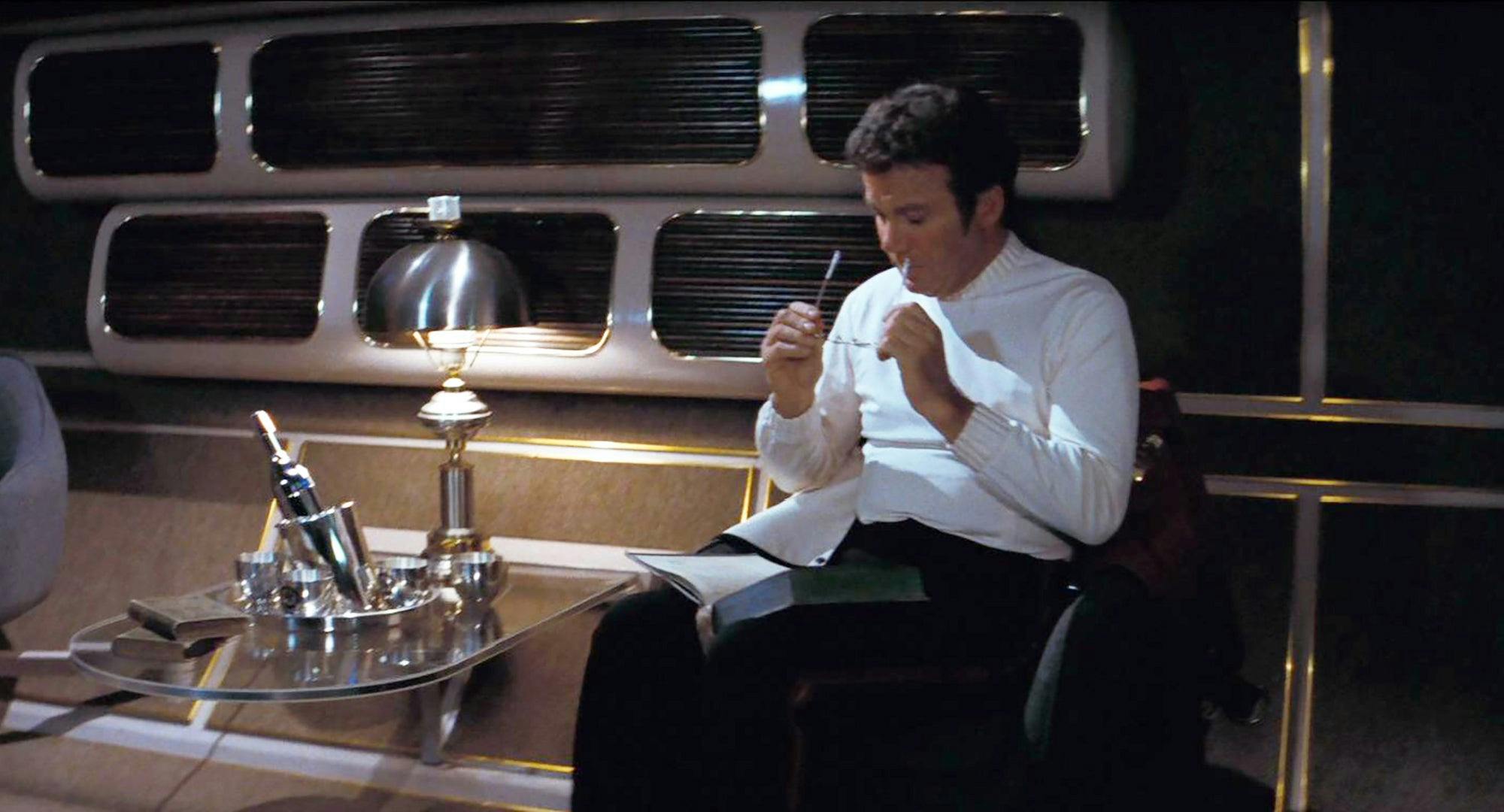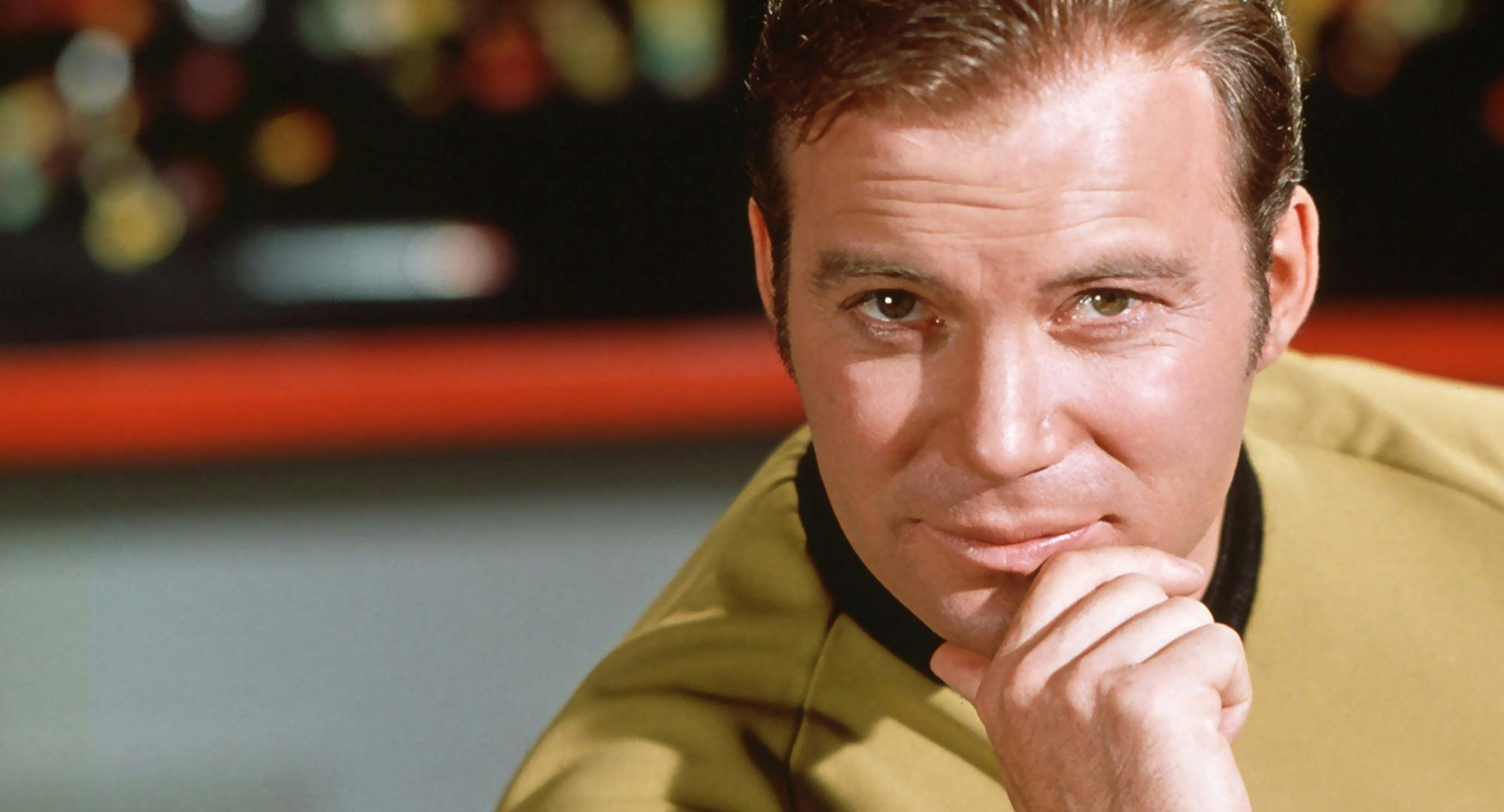Published Sep 6, 2019
Top 10 Books 'Star Trek' Characters Can Read (And We Can’t)
'Trek' has never shied away from literary references... real and imagined.

StarTrek.com
Ethan Peck Reads Too Many Tribbles
Star Trek has always been a literate series; whether it’s Spock gifting Kirk a copy of A Tale of Two Cities, Michael Burnham quoting Alice in Wonderland, Captain Kirk quoting Peter Pan, or Benjamin Sisko re-enacting Les Miserables in his pursuit of Michael Eddington, books have always played a major role in the lives of our intrepid explorers. The number of classics which come highly recommended by Starfleet officers number in the dozens.
But, Star Trek takes place hundreds of years in the future, and spans planets and cultures that we 21st-century types don’t have access to. So Trek also makes mention of books that we can’t read, because they haven’t been written yet, or aren’t written on this planet, or didn’t get written in our particular timeline.
Here are ten of those books, ranked by how much it rankles that we can’t crack the spine on one of these today, on National Read a Book Day.

StarTrek.com
Vulcan Love Slave
One assumes, with a cringe-worthy title like this, that Vulcan Love Slave can’t possibly be a very good book. And yet, the book spawned a Volume 2 and Volume 3, and wandering the corridors of the USS Voyager during the (probably not-canon) video game Star Trek: Voyager Elite Force, you can find PADDs containing the novel in the quarters of your fellow Hazard Team members. The book was (probably luckily for us) never portrayed or excerpted in any Trek property, but one assumes that it was the 24th-century equivalent of Fifty Shades of Grey.
Guadaal’s Lament by Akorem Laan
There’s something very classically Bajoran about how the poem Major Kira says every child on her planet can quote by heart is actually a “lament.” Someone send those poor Bajoran children a shipment of Dr. Seuss, STAT. Regardless, Akorem Laan is considered one of the finest poets in Bajoran history, which is good because his tenure attempting to take over for Sisko as Emissary to the Prophets was rocky at best (he tried to re-institute a caste system).
Hotel Royale
One of the magical things about books is that once a book has really hooked you, you want nothing more than to live in that book forever. The world is full of people who would love to live inside Harry Potter, The Hobbit, or Little Women and spend time in those idyllic places with the characters they’ve come to love. The Royale is not such a book. Just ask Colonel Stephen Richey, the NASA astronaut whose ship went off-course one fateful day. Powerful aliens saved his life, but they were unfamiliar with the human race, so they used the only reference material he brought with him into space - The Hotel Royale, a midcentury paperback of the sort you’d pick up at the airport. Much like the Hotel California, once you check into the Royale you can never leave: Richey died of old age in his bed, having lived out several decades trapped in the Hotel Royale with cliched, looping dialogue, tawdry plot twists, and flat character development. The same fate seemed ready to befall Worf, Riker, and Data, until our resident android figured out that ending the book’s plot would allow them to leave - all he had to do was cheat at gambling until he had enough money to buy the hotel.
Janeway Lambda One
It’s pretty well-established that most holodeck programs are adaptations of previously-written works. So we can assume that Janeway Lambda One, the otherwise-unnamed Victorian mystery thriller, is based on some written work. It ticks off all the boxes of a book from the mid-1800s: Janeway plays a governess, which seems to be the job-to-have for the heroines of Victorian novels. It’s got a handful of precocious, slightly-creepy British children. And it’s got a forbidden wing of the house, which might (definitely) contain the brooding master’s first wife, imprisoned and possibly mad. That said, Janeway doesn’t appear to have ever finished the program, so this probably isn’t what one would consider a cracking read.
The Never-Ending Sacrifice
A fine example of Cardassian literature, the Never-Ending Sacrifice tells the tale of multiple generations of a Cardassian family toiling away before dying for the good of the State. Garak considers it a fine example of the genre known as the “repetitive epic,” a popular style of Cardassian fiction, but Bashir finds it tedious and dull. By contrast, Garak finds Shakespeare’s Julius Caesar to be a comedic farce, because any Cardassian with half a brain would have known immediately that Brutus and co. were plotting against him. These sorts of cultural exchanges were always a fun part of Trek, imagining alien races reacting to our finest art, and I’d happily watch a Trek spinoff that was nothing but various characters having a book club. Given his experience with that sort of thing, I nominate LeVar Burton.
The (Complete) Ferengi Rules Of Acquisition
“Remind me to give you a copy of the Rules, you'll never know when they'll come in handy.” -Quark
Yes, you can find copies of The Ferengi Rules Of Acquisition out there, but the rules we hu-mons can find ourselves are woefully incomplete, only repeating the rules said out loud on Star Trek: Deep Space Nine, usually by Quark or another member of his family. But what about the rest of the rules? What wisdom of the Ferengi people are we missing out on here on Earth? The Ferengi are one of the major players in the Alpha Quadrant and they have (as Iggy Pop famously said) a reputation for shrewdness, and it all comes down to this tome of big-eared wisdom.
Photons Be Free
It took quite some time on Voyager before the crew started treating the Doctor, the ship’s Emergency Medical Hologram, like a part of the team instead of a piece of equipment. So it’s no surprise that when Voyager finally made contact with the Alpha Quadrant again, it would take a while for everyone back home to see him in that same light. When the Doctor wrote Photons Be Free, a sort of choose-your-own-adventure holonovel designed to educate the Alpha Quadrant about the servitude inherent to the life of an EMH, his publisher ripped him off and published the program without the Doctor’s permission. This touched off a legal battle very similar to “The Measure of a Man,” with a less-encouraging verdict: the Arbiter did not rule the Doctor a person like Data. But he *did* rule the Doctor was legally an author — which is why I’m counting this episode as a book despite the lack of written word — and the episode’s stinger, showing his fellow EMHs passing around Photons Be Free like an ill-gotten bootleg, highlights the important place that books and stories can play in liberating the oppressed and changing attitudes.
Dixon Hill: The Big Goodbye
At first, it seems rather odd that Jean-Luc Picard — archaeologist, intellectual, Shakespeare buff — would be drawn in to the pulp detective novels of Dixon Hill. As shown in his trips to the holodeck throughout Star Trek: The Next Generation, Picard isn’t particularly drawn to the violence inherent to the two-fisted tales of the square-jawed sleuth, and he can’t smoke a cigarette to save his life. And yet, if you drill down, the appeal starts to become clear. As a graduate of Starfleet Academy, Picard would be intimately familiar with the streets of San Francisco and would relish the opportunity to walk around a detailed historical creation of the city. And at their heart, the Dixon Hill novels are detective novels, which means they’re about getting to the heart of the mystery and uncovering the truth - and the truth is, as Picard once famously said, the first duty of any Starfleet officer.
Chicago Mobs Of The Twenties
Based on the title, you’d assume this would have to be a dry read. But after the crew of the USS Horizon left a copy of this book behind on an alien world, the native Iotians ended up imitating every aspect of the book, so that by the time Kirk, Spock, and company came to the planet a hundred years later, the Iotians had fully recreated the Chicago of the 1920s, complete with Tommy Guns and gang wars. The few glimpses we get of “The Book” seem to indicate something similar to a textbook or reference guide, and yet there must be something in the way the book told the story of Al Capone’s heyday to have so captured the imaginations of the Iotian people.
Anslem
Jake Sisko was very-notably not much like his father, Captain Benjamin Sisko. Rather than attending Starfleet Academy, Jake became a journalist, with the hopes of becoming a writer someday. And whether it’s in the far-flung and heartbreaking future of “The Visitor,” or the high-concept episode “Muse,” no matter the timeline the novel Jake writes is always Anslem. A semi-autobiographical novel, Anslem talks about all the things that Jake carries around inside his heart - and when your mom dying at the hands of the Borg is only one of the things, there’s a lot for him to vent about. We never get to hear much of this book, but everyone who reads it finds it impossible to put down, a (poorly-spelled) masterpiece for the young artist. We also never get to find out what the plot of the novel is, but one hint comes from various Trek tie-in sources that explain the title: 'Anslem' is Bajoran for “father.” Even without knowing much else, it’s safe to say that Anslem is the best book on this list, and the one we’d most like to read.
This sexist little novelty book was one Quark used to hand out to his female employees, until he learned the error of his ways thanks to a little introspection and a whole lot of surgery. Definitely not worth a read.
This cursed work of ancient Bajor calls forth the hideous Pah-Wraiths from the Fire Caves to wreak havoc and destruction upon the galaxy. May also cause blindness. 1/10, would not read again.

